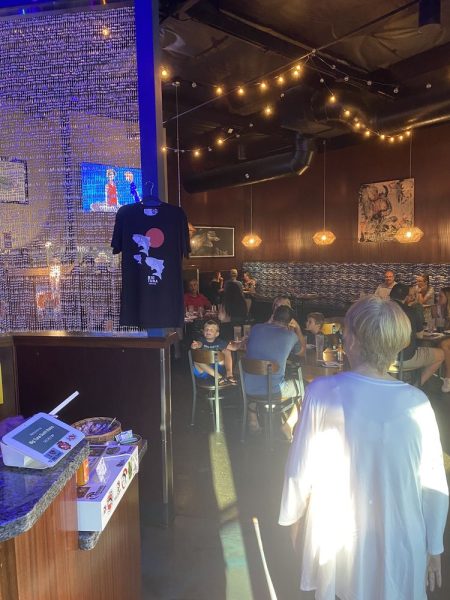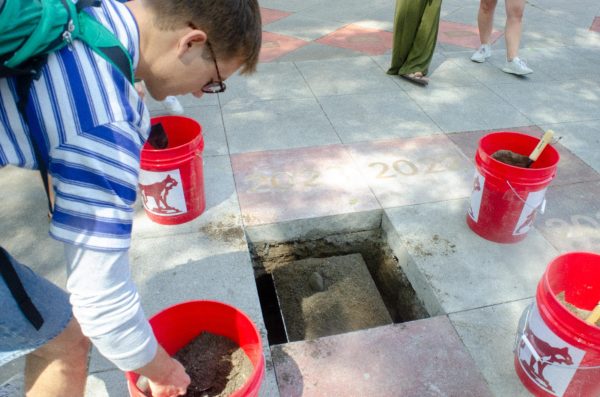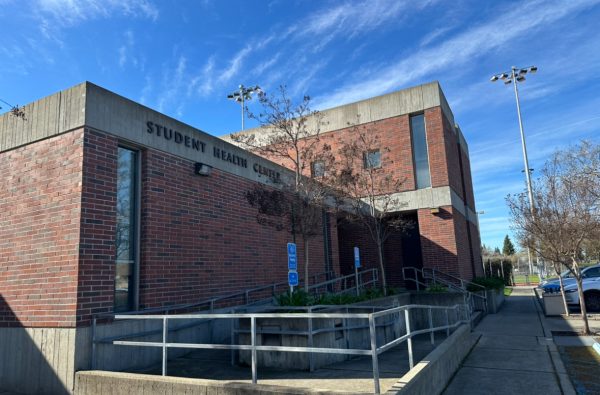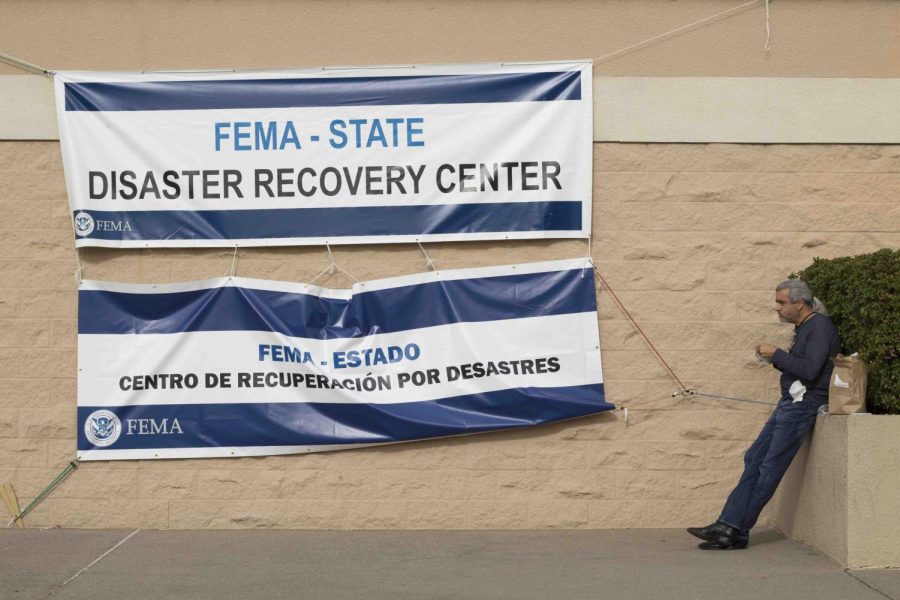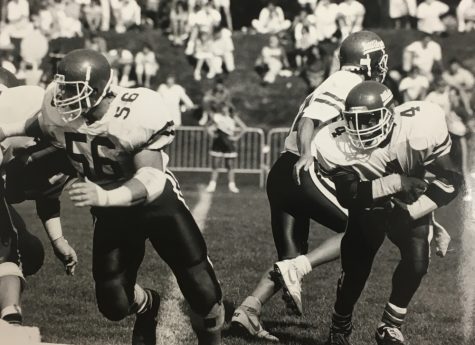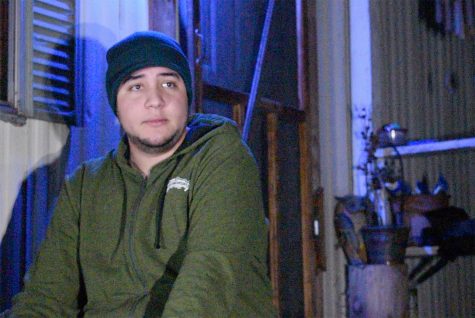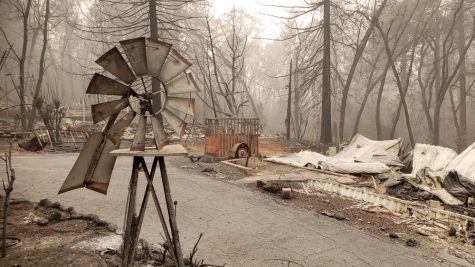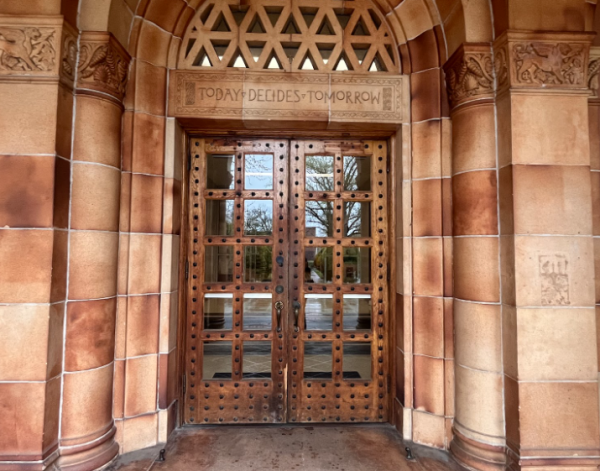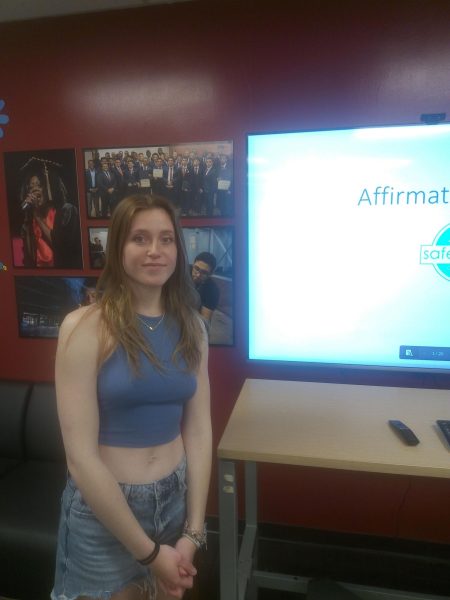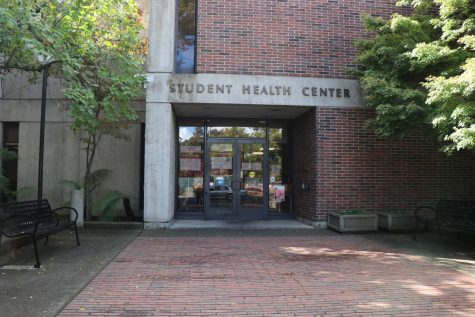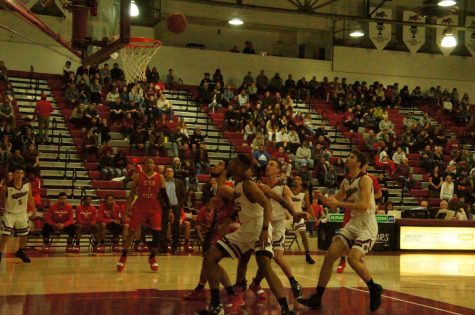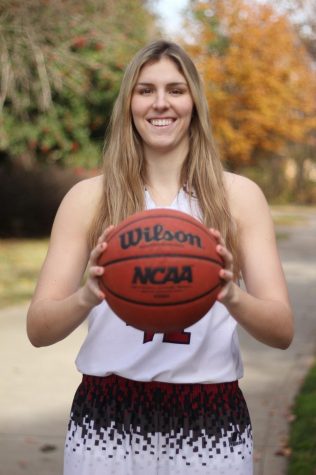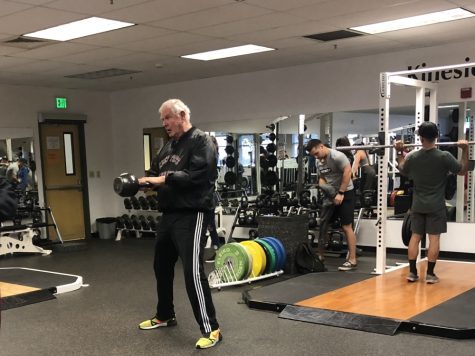FEMA plans to stay in Chico as Camp Fire statistics continue to rise
A man enjoys a meal provided by World Central Kitchen at the Disaster Recovery Center located inside the Chico Mall. The center provides Camp Fire evacuees with resources to help with recovering documents, counseling and other kinds of support. Photo credit: Brian Luong
The Federal Emergency Management Agency (FEMA) will continue operating at the local assistance center in Chico until Jan.12, at the earliest. However, the probability of staying beyond that date remains high according to FEMA officials.
The Stafford Act, a prescriptive law approved by Congress dictating the way FEMA will function in a disaster, mandates the agency to stay 60 days after the federal disaster declaration, which occurred Nov. 12. Sixty days is also the allotted time fire survivors have to register for assistance.
As of Monday night, FEMA had received 17,635 applications for individual assistance and given out $21,595,120.70 in assistance to Butte County residents, according to statistics provided by FEMA. In comparison, FEMA has received 2,663 applications and given out $911,563 in Los Angeles and Ventura County combined.
Daniel Winn, a Public Information Officer and American Sign Language Interpreter for FEMA, believes the agency will remain in Chico for a significant amount of time after the required 60 days because of the steps that follow registering.
“People don’t only come here to register,” Winn said. “They also come in here to follow up on the case, bring additional documents and appeal decisions.”
According to Winn, the center averaged over 1,500 people per day last weekend.
Frank Mansell, Public Affairs Specialist for FEMA, spoke on the comprehensive application process, which takes approximately one hour to complete, and the issues that may arise from it.
“It’s a very detailed interview. That’s why the program works,” Mansell said. “It’s also why people think they’re being shortchanged. ‘It’s because my neighbor got an extra $10,000 and I didn’t.'”
Mansell explained that individuals are looked at on a case to case basis and the assistance program they receive is based on the answers given on the application form.
“We don’t get any commission for short suiting anyone,” Mansell said.
Steve Johnson, a disabled veteran who lost his home in Paradise, could not be more appreciative of the people working at FEMA.
Although Johnson realizes some people may be impatient, given the long lines and wait times, he gave credit to FEMA and the other organizations for their handling of the situation.
“Under these circumstances, with as many people as there are for them to deal with, they’re doing it in a very organized way,” Johnson said. “I’m impressed by it. There are some people that are upset, but that’s going to be (a) given.”
One of the main premises behind the detailed application is to ensure FEMA does not duplicate benefits covered by insurance. According to Mansell, many household policies include extending living allowances, which insure damages.
“A lot of people with homes will get a letter saying, ‘you’re not covered because you have an insurance policy and your insurance company is already giving you $50,000,’” Mansell said.
Mansell stated missing forms and insurance are the two main reasons people get denied from FEMA. He also clarified a common misconception many people may hold.
“It’s not uncommon for somebody to come in here and say FEMA is going to put my house back the way it was,” Mansell said. “That is the furthest thing from the truth. FEMA is going to provide you resources to help you get back up on your feet.”
Mansell suggests fire survivors check with their insurance company and policy immediately so FEMA can better assess their eligibility for programs and assistance. Additionally, Mansell recommends applying regardless of an individual’s circumstances or insurance.
However, Mansell did make sure to explain the difference in the assistance FEMA provides compared to insurance coverage.
“We replace functional items,” Mansell said. “You had an 80-inch television. We’re going to give you a 32-inch television, if you don’t have insurance. It’s as simple as what are the necessities.”
The local assistance center is open daily 9 a.m. to 7 p.m. and operating in the old Sears building at the Chico Mall.
Mathew Miranda can be reached at [email protected] or @MathewMiranda24 on Twitter.
